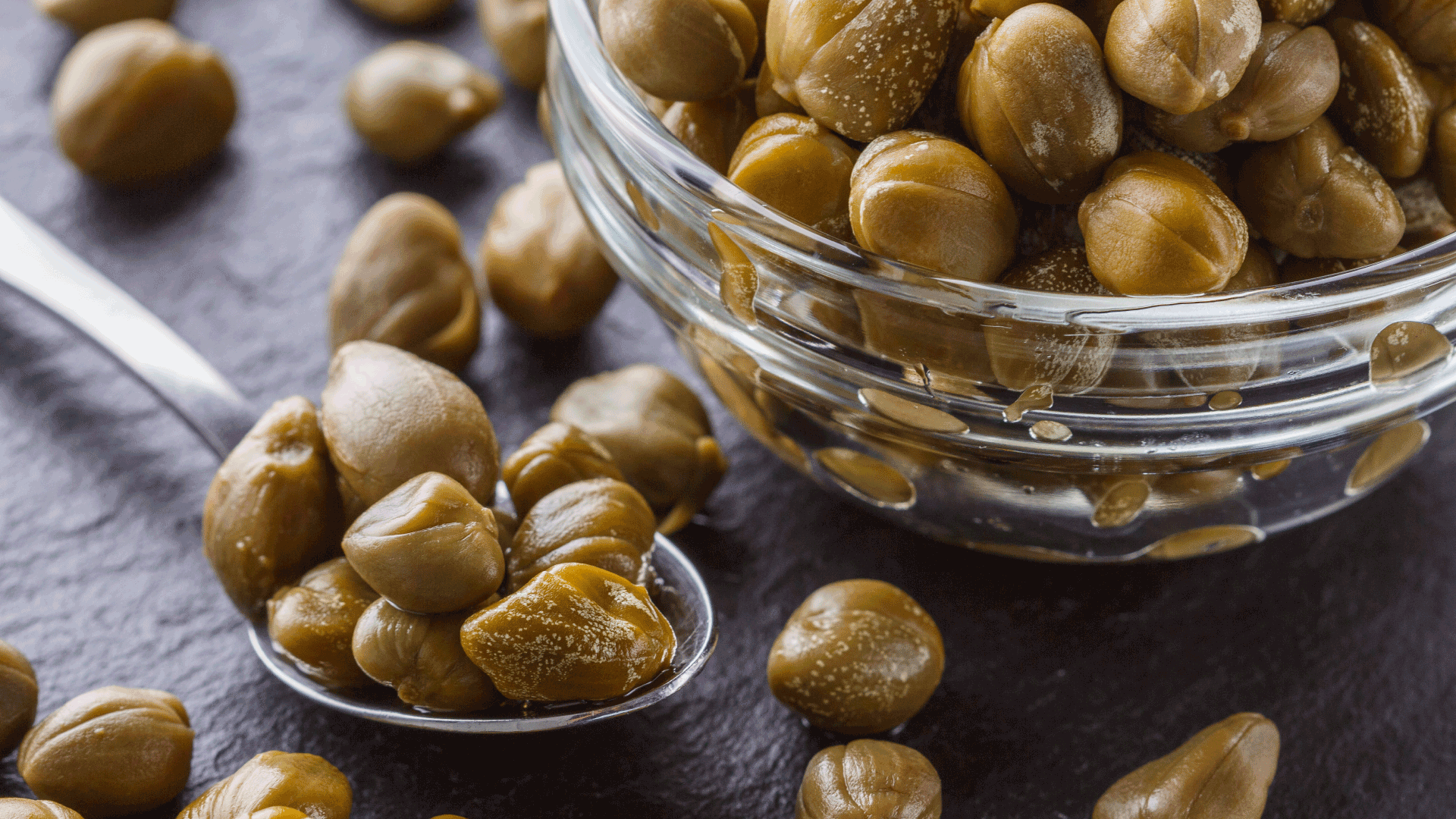Capers grow in places where the Mediterranean climate prevails. It generally grows naturally in Western Anatolia, Tokat and its surroundings in Central Anatolia, and in the Eastern Black Sea and Southeastern provinces in Turkey. Caper plant has a bushy structure, grows upright and horizontally, and is thorny. Capers are very rich in phosphorus, potassium and calcium. This plant, which loves clay soils, usually grows spontaneously on slopes facing the sun, due to its fondness for the sun. There is a lot of vitamin A and protein in flower buds.
According to a study, it was determined that 100g of flower buds contains;
- 67 mg phosphorus
- 9 mg iron
- 24 mg protein
- 12 mg cellulose
- 2 mg of lipid
It is a plant that is widely used in the food, cosmetic and pharmaceutical industries. Canned capers can be consumed as a side dish with pickles, salads, pizza toppings, fish and game. The buds are kept in salt water in a jar for three months, then vinegar is added in a one-to-one ratio and consumed after ten days. Spain declared the caper as a “National Plant”, thanks to its buds, which generate 20 billion dollars annually. Capers are under state protection in Spain.
Caper is a plant discovered by Evliya Çelebi 400 years ago. Even Evliya Çelebi could not help but mention capers in his books. In Mediterranean countries, capers have been used for therapeutic purposes in foods and medicines from past to present, as well as in the cosmetic industry.
Capers have pea-sized buds. These buds are very rich in protein, vitamins and minerals. Apart from that, these buds are quite filling. The buds, tips, and all parts of the caper are very useful. Branch tips and buds are generally used in the food industry, and hard branches, roots and fruits are used in the cosmetics and pharmaceutical industries. Research conducted at the International Cancer Institute has included capers among the plants used in the preparation of “extracts” that provide antitumor activity.
Benefits of Capers
- Stands out with its pain relieving properties.
- Helps regulate the digestive system.
- Has constipation relieving properties.
- Is a very good diuretic.
- Has expectorant properties.
- Ensures regularity of menstruation.
- Helps kill worms and parasites.
- Is very good for rheumatism pains.
- Reduces the risk of stroke.
- Useful in scurvy disease.
- Good for blood disorders.
- Very useful for gout.
- Has antitumor effects.
- Useful for stomach problems and ulcers.
- Useful for hemorrhoid problem.
- Useful for spleen enlargement.
- Relieves the symptoms of hip disorders and reduces the risks.
- Is among the herbs recommended for increasing the platelet count, especially in cancer patients.
- Regulates liver functions.
- Very good for Multiple Sclerosis (MS) disease.
The benefits of the caper plant are countless, but there is one point that should be taken into consideration. Caper is a plant that is both beneficial and harmful. It can be poisonous. For this reason, it is necessary to consume processed capers or capers sold in tablet form. If consumed as soon as collected, it can be poisonous. First, it should be dried in the shade and its poison removed.
How to Use Capers?
Capers, especially the seeds of their flowers, are collected before they open and are used to make medicine and for therapeutic purposes. Apart from this, its fruits and leaves are also used. It can be pickled. It is a very delicious choice in salads and especially in fish recipes.


